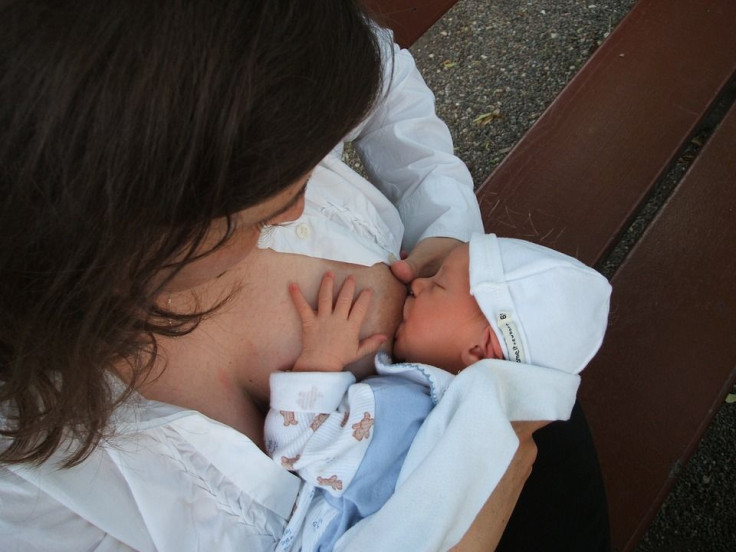Vaccine Rumors And Breastfeeding: Report That Said CDC Told Moms To Delay Breastfeeding Debunked

Government health officials encourage breastfeeding, despite a widely shared false news story.
The story, which appeared on multiple websites, stated the U.S. Centers for Disease Control and Prevention recommends mothers delay breastfeeding to improve vaccine effectiveness.
“There is no recommendation from the CDC or the (American Academy of Pediatrics) that mothers delay breastfeeding to enhance vaccine efficacy,” Dr. Joan Younger told the Associated Press. “Breast milk contains multiple immune protective factors, including whole cells which fight infection.”
Read: 4 Fears That Keep Women From Breastfeeding: Why Nursing Can Be Hard To Start
Versions of the false story cite a small, 2010 study that looked at why a vaccine against rotavirus wasn’t as effective in developing countries as industrialized countries. Although this study, published in the Pediatric Infectious Disease Journal, found breast milk may make the vaccine less effective, later research shows otherwise.
The World Health Organization describes breast milk as “the perfect food for the newborn.” The organization recommends that mothers exclusively breastfeed their baby (if possible) within an hour of birth up to 6 months of age. After 6 months, solid food should be added to the baby’s diet, complemented by breastmilk for up to 2 years or longer.
Breastfeeding poses many health benefits for a mother and her child, including some protection against infections, like pneumonia, and a reduced risk for mothers to develop breast and ovarian cancer, type 2 diabetes, and postpartum depression. Additional research shows the process may also have physical and emotional benefits.
In the United States, breastfeeding rates continue to rise. More than 80 percent of babies born in 2013 started out on breastmilk, reports the CDC.
See also: Breastfeeding Diet: 7 Nutritious Foods For Mom To Satisfy Baby's Taste Buds
Breast Is Best: Why We Need To Make Women Feel Comfortable Breastfeeding In Public, Work Spaces



























